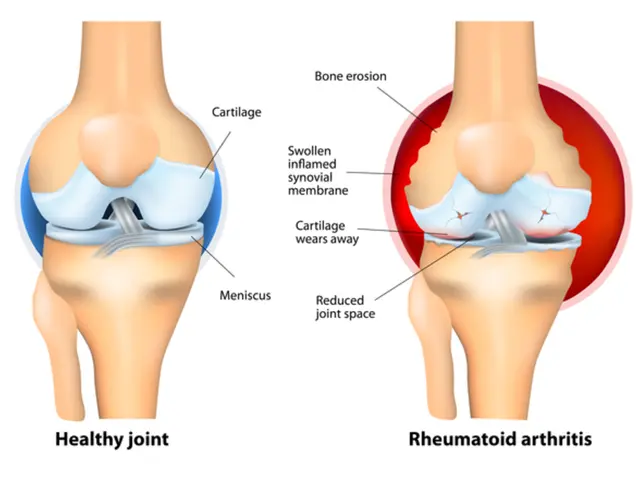Maintaining Brain Health: Embracing Mediterranean Diet and Regular Exercise as Defensive Measures
Let's Chat About the MedWalk Intervention
The MedWalk intervention, short for a Mediterranean diet and walking, is being investigated by researchers to determine if it could lower the risk of cognitive decline and dementias, such as Alzheimer’s dementia. This study is ongoing, even after being interrupted by COVID-19, and data on the processes and ongoing analysis is available in the Journal of Alzheimer's Disease.
Brain Health and the Mediterranean Diet
Previously, research has connected both the Mediterranean diet and walking to brain health. This new study wants to confirm the benefits of the combined MedWalk intervention. The study, conducted by researchers from Australia, New Zealand, and the United Kingdom, was originally designed to assess cognition over a 2-year period. However, due to the pandemic, it was shortened to a single year, catering to a wider sample of older participants from independent living retirement communities and the larger community.
The Intervention's Focus
The primary interest of the study authors lies in a 12-month change in visual memory and learning for the participants. Additionally, they are observing the intervention’s impacts on mood, quality of life, health costs, cardiovascular health, arterial stiffness, and biomarkers associated with cognitive decline, such as glucose regulation, inflammation, nutrients, and oxidative stress.
Participants are assigned to either the MedWalk intervention group or a control group with their usual diet and activity level. The intervention consists of dietary modification alongside a supervised walking regimen, supported by psychosocial behavioral change techniques. Participants receive intensive support for the first six months, with additional help available for the subsequent six months to help them adhere to the intervention.
The Mediterranean Diet and Cognition
Certified nutritionist Conner Middelmann, specializing in the Mediterranean diet, mentioned to Medical News Today that studies suggest that following a Mediterranean diet is linked to fewer dementia cases. More research, like a study in 2023, found an association between the Mediterranean diet and lower rates of Alzheimer's disease, the most common form of dementia. However, Middelmann urged that while these studies indicate a connection between the Mediterranean diet and reduced dementia risk, other factors could contribute to dementia risk, including genetics, lifestyle, and overall health.
The Mediterranean diet may aid brain health by containing antioxidants that fight oxidative stress and inflammation, omega-3 fatty acids, fiber that supports gut microbiome balance, and omitting processed grains and sugars. Furthermore, physical activity, social engagement, and consuming ultra-processed foods are not encouraged in the diet, contributing to brain health.
Walking and Cognitive Health
Walking regularly is associated with slower cognitive decline. A study found a dose-dependent relationship between the number of steps taken and the lower risk of dementia. The risk of dementia can be reduced by up to 50% by taking 10,000 steps per day. Another study linked walking speed to dementia, and a 2017 study published in the British Journal of Sports Medicine suggested that aerobic exercise like walking could lessen cognitive impairment.
Brain health coach Ryan Glatt, who is not involved in the study, explained that walking might increase blood flow to the brain, improve brain activity, reduce stress, and enhance well-being while incorporating social and nature elements beneficial to brain health.
The study’s data collection period is set to conclude by the end of 2023.
- The MedWalk intervention, a combination of a Mediterranean diet and walking, is being studied by researchers to potentially lower the risk of cognitive decline and dementias, including Alzheimer’s dementia.
- Researchers from Australia, New Zealand, and the United Kingdom are investigating the 12-month change in visual memory and learning of participants engaged in the MedWalk intervention.
- The study also examines the intervention’s effects on mood, quality of life, health costs, cardiovascular health, arterial stiffness, and biomarkers associated with cognitive decline.
- Participants are assigned to either the MedWalk intervention group or a control group, with the intervention consisting of dietary modification and a supervised walking regimen.
- Certified nutritionist Conner Middelmann suggests that following a Mediterranean diet may lower dementia cases and aid brain health due to antioxidants, omega-3 fatty acids, fiber, and omitting processed grains and sugars.
- Walking regularly is associated with slower cognitive decline as it increases blood flow to the brain, improves brain activity, reduces stress, and enhances well-being, while incorporating social and nature elements beneficial to brain health.








